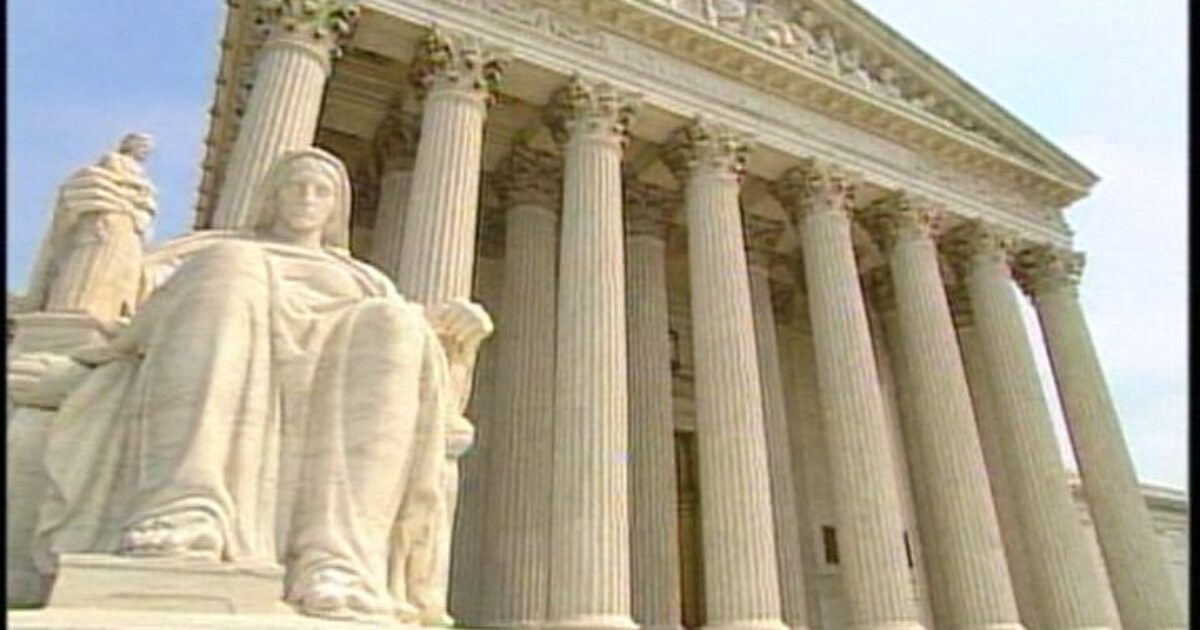Oral arguments for Texas heartbeat law indicate Barrett, Kavanaugh not slam dunks for the unborn
Two of Donald Trump's appointees to the nation's highest court appeared wary of aspects of the pro-life law.
Tue Nov 2, 2021 - 3:37 pm EDT
WASHINGTON (
LifeSiteNews) — Oral arguments before the United States Supreme Court began Monday over a Texas law banning abortion once a heartbeat is detectable, with several observers expressing alarm that the court’s newest Republican justices appeared sympathetic to the abortion lobby’s legal claims.
The
Texas Heartbeat Act requires abortionists to screen for a preborn baby’s heartbeat and prohibits abortion if a heartbeat can be heard (generally as early as six weeks), with exceptions only for medical emergencies. Its unique enforcement mechanism, which “exclusively” empowers private citizens to bring civil suits against abortionists instead of state prosecutions, has been credited for the Supreme Court’s
prior September decision not to block it from taking effect.
The court heard two sets of arguments regarding the law,
one concerning Texas abortionists’ challenge to its enforcement mechanism, and the
other concerning the federal government’s challenge to the law. Neither case directly concerns the substance of the Texas Heartbeat Act, but whether the plaintiffs’ petitions seeking injunctions against the law have the standing to proceed.
One major sticking point was whether the courts could review the law at all in light of the fact that no enforcement action has yet occurred, and that its
deterrence of abortions so far has been entirely due to the “chilling effect” on the abortion industry’s willingness to risk violating it.
Chief Justice John Roberts, a George W. Bush appointee, noted that it would take “a lot of fortitude to undertake the prohibited conduct” with sufficiently large financial penalties hanging over one’s head, yet “it is only by undertaking the prohibited conduct that you can get into federal court.”
But while Roberts’ apparent sympathy to the plaintiffs’ arguments was unsurprising in light of
his record, the questioning by two of former President Donald Trump’s appointees, Justices Brett Kavanaugh and Amy Coney Barrett, raised more eyebrows.
One major sticking point was the 1908 Supreme Court precedent
Ex parte Young, which
SCOTUSblog’s Amy Howe
explains “allow lawsuits in federal courts against state officials to bar them from enforcing unconstitutional laws, but prohibit injunctions against state courts.”
Kavanaugh argued that
Young “sets out this principle that you can get pre-enforcement review in federal court against state enforcement of laws that are assertedly unconstitutional,” and while the heartbeat law exploits a “loophole” in that case, the rationale “would suggest extending the principle here” to allow the providers’ suit to go forward.”
At another point, Kavanaugh pursued a line of questioning that seemingly granted the
false premise that abortion is a “constitutional right,” and asked whether upholding the law would set a precedent that could be used by “other states that disfavor other constitutional rights” to deny pre-enforcement review to infringements on speech, religion, or gun rights.
Texas Solicitor General Judd Stone answered that “in several of those circumstances individuals who are concerned that a lack of immediate pre-enforcement federal court access would cause them ruinous liability or otherwise suppress their ability to exercise those rights, have turned to Congress and succeeded.” But Kavanaugh responded that “for some of those examples” it “would be quite difficult to get legislation through Congress.”
Barrett, meanwhile, “repeatedly raised the question of whether the law prevents people from asserting their constitutional rights,”
observes HuffPost’s Lydia O’Connor. “She also signaled concern over hundreds of people being able to sue over a single abortion, while judges could only rule one case at a time.”
Barrett also pondered whether someone “who was counseling someone to get an abortion” could be sued under the law, and then “could say, I have a First Amendment right to free speech, and so it would be unconstitutional.” Stone responded by noting that Subsection F of the law “says that nothing in this section shall in any way prohibit, limit, preclude a defendant from asserting that defendant’s personal constitutional rights as a defense.”
Two of Donald Trump's appointees to the nation's highest court appeared wary of aspects of the pro-life law.

www.lifesitenews.com
 . When you read it you see how insane it is that ANY judge would not have granted the injunction based on the points Gorsuch raised. Seems so open and shut.
. When you read it you see how insane it is that ANY judge would not have granted the injunction based on the points Gorsuch raised. Seems so open and shut. 

